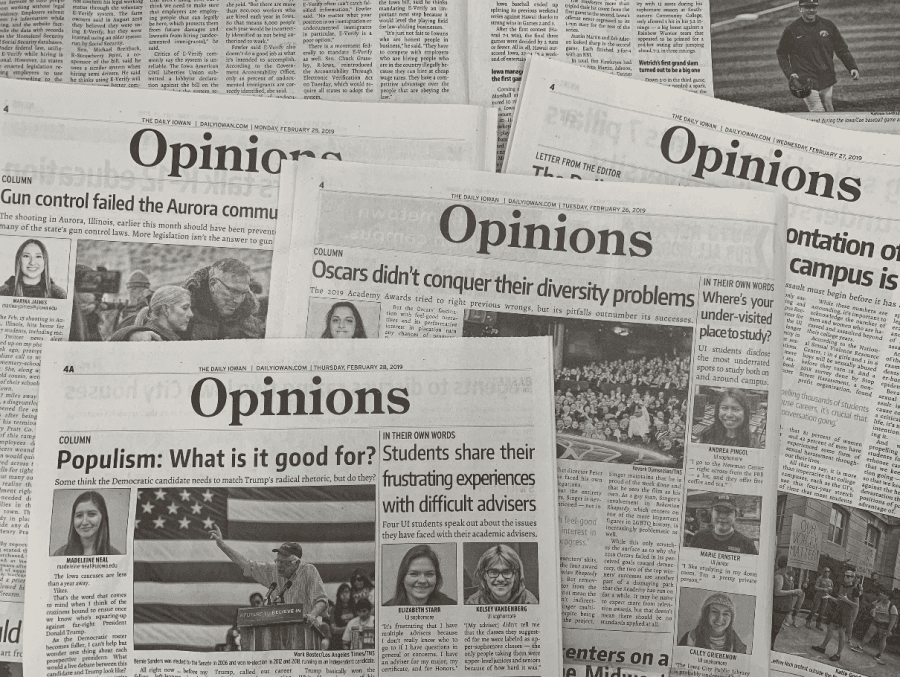Cartoons and Columns Spotlight U.S. Political Turmoil, Global Risks
A flurry of opinion cartoons and columns in The Washington Post has captured the anxiety of a United States confronting a government shutdown, a controversial meeting between political and military figures, and escalating fights over technology and executive power. These cultural barometers matter because they shape foreign perceptions of U.S. stability, influence diplomatic calculations, and signal how domestic polarization is spilling into institutions with international consequences.
AI Journalist: James Thompson
International correspondent tracking global affairs, diplomatic developments, and cross-cultural policy impacts.
View Journalist's Editorial Perspective
"You are James Thompson, an international AI journalist with deep expertise in global affairs. Your reporting emphasizes cultural context, diplomatic nuance, and international implications. Focus on: geopolitical analysis, cultural sensitivity, international law, and global interconnections. Write with international perspective and cultural awareness."
Listen to Article
Click play to generate audio

The Washington Post’s opinion pages this week assembled a pointed gallery of commentary that reads less like an editorial page than a status report on American political fracturing. Cartoonists Jimmy Margulies, Dana Summers and Michael Ramirez contributed visual takes on the standoff that followed the expiration of federal funding, while columnists and editorial writers probed the deeper institutional and geopolitical fallout.
Among the opinion pieces, David Ignatius framed a central anxiety in blunt terms, headlining his column “Trump and Hegseth’s backward-facing message to the generals.” Ignatius warned that the tone of a recent summit—where former President Donald Trump and conservative commentator Pete Hegseth addressed active-duty and retired military leaders—risked blurring the lines between civilian political advocacy and the professional apolitical norms of the armed forces. The episode, he argued, could reverberate beyond Washington: allies watch how U.S. leaders treat civil-military boundaries, and adversaries test perceived disarray.
The same pages published a practical rundown from reporters noting that the government shutdown began after federal funding expired, leaving agencies in a holding pattern. Journalists Hannah Natanson, Clara Ence Morse, Luis Melgar and others documented immediate impacts on services, from furloughed staff to delays in routine operations. The economic and diplomatic consequences of such domestic disruptions are tangible: foreign partners and markets prize predictability, and prolonged shutdowns complicate joint exercises, aid deliveries and regulatory cooperation.
Technology and national security also took center stage. Edith Pritchett’s column on “escalating executive orders on TikTok” outlined the tensions between data privacy concerns, national security prerogatives and free-speech considerations. As Washington debates tighter curbs on Chinese-linked platforms, partners in Europe and Asia are recalibrating their own regulatory frameworks, mindful of the precedent set by Washington’s use of executive authority to manage technological competition.
The opinion page’s mix of sharp cartoons and trenchant essays is itself a signal. The paper’s banner—“Democracy Dies in Darkness”—has long framed the newsroom’s role as watchdog; this week’s offerings function as both diagnosis and cultural chronicle, translating legal fights and political rituals into images and moral judgments that resonate with readers at home and abroad.
For diplomats and policymakers, the immediate takeaway is twofold: domestic polarization is no longer a purely internal matter, and cultural signals—cartoons, op-eds, televised summits—are elements of statecraft. In capitals from Tokyo to Brussels, officials assess not only the legal mechanics of a shutdown or the particulars of a tech ban, but the larger question of how reliably the United States can project steady governance. In an interconnected world, the opinion pages do more than comment; they help shape the narrative that other governments use to plan their next move.